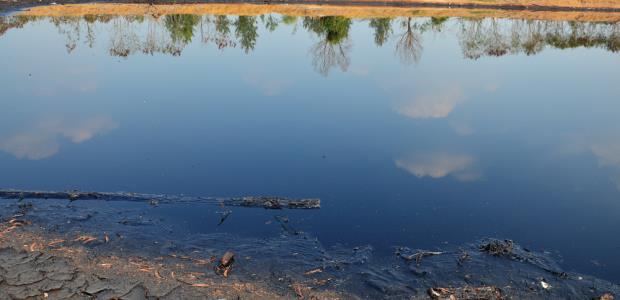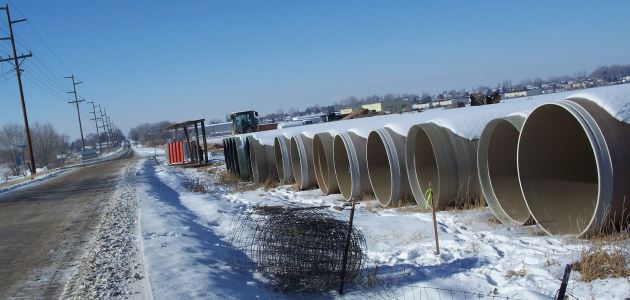From May 3-9, agencies such as the Department of Environmental Protection in Pennsylvania and the Ohio EPA are honoring National Drinking Water Week.
The tool is called DIVER for Data Integration, Visualization, Exploration, and Reporting.

The U.S. Department of Agriculture (USDA) has announced a $235 million investment for improving water quality, drought prevention, and habitat protection through the Regional Conservation Partnership Program (RCPP).
Marine biologists say that at the moment, a population estimated at more than 20,000 gray whales appears to be healthy and reproducing well.
A new survey reveals that 55 percent of American men and women are concerned about the quality of their tap water.
Despite progress, Southern California's air remains home to some of the worst air in the United States, the American Lung Association said Tuesday in its annual State of the Air report.

Soil and groundwater contamination will be getting cleaned up at a Maryland Superfund Site, thanks to TerraTherm, Inc. who announced a $6.9 million cleanup contract for chemical contamination.
A new U.S. Environmental Protection Agency formula for calculating the amount of pollutants released by flares at refineries and chemical plants nationwide shows that those emissions are four times higher than previously thought.

The use of clean fuels and updated pollution control measures in school buses that 25 million children ride every day could result in 14 million fewer absences from school a year, based on a study by the University of Michigan and the University of Washington.
The existing Tennessee Gas Pipeline runs 256 miles through 18 Kentucky counties. The company proposes to change the product flowing through the pipeline from natural gas to natural gas liquids.
"With our customers' environmental expertise, plus funding, PIG products, and leadership, we believe this program can make measurable improvements in communities around the country," said Doug LaPlante, New Pig's vice president, Strategy.

EPA and the DOT agency will finalize a new set of longer-term medium- and heavy-duty truck fuel efficiency standards in 2016.

In the 21st century, the big challenge facing the world is climate change.
Through incineration, hazardous wastes can be safely and efficiently discarded.

The U.S. Geological Survey's latest study showed rainwater runoff caused 100% mortality to minnows and water fleas, which are part of the base of the food chain.
A global study underscores that rapidly deteriorating water quality – not just water quantity – is escalating a global water crisis. Innovative modeling of climate change, socio-economics and water quality trends indicates up to 1 in 3 people will be exposed to high risk of water pollution.

Repair of this facility presents many challenges, making the total project a seemingly insurmountable obstacle. But the FHIIP is completing rehabilitation of this facility in phases over several years and recently completed the first phase of construction.
China has revived a controversial concept to monitor pollution, a decade after its first attempt at calculating its "green GDP" suffered a swift death.
This is one of the world's largest programs for recycling harmful household products. The New York City Department of Sanitation administers the program.
The state energy and environmental agency often splits civil enforcement actions -- part fine, part remediation project of a significant value. But for a financial crime in federal court, this, all agreed, was a novel concept.